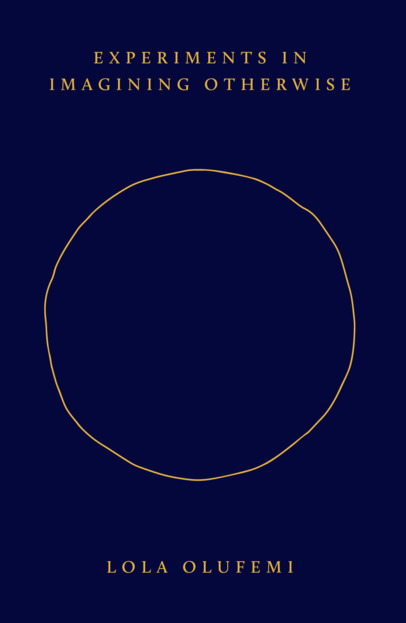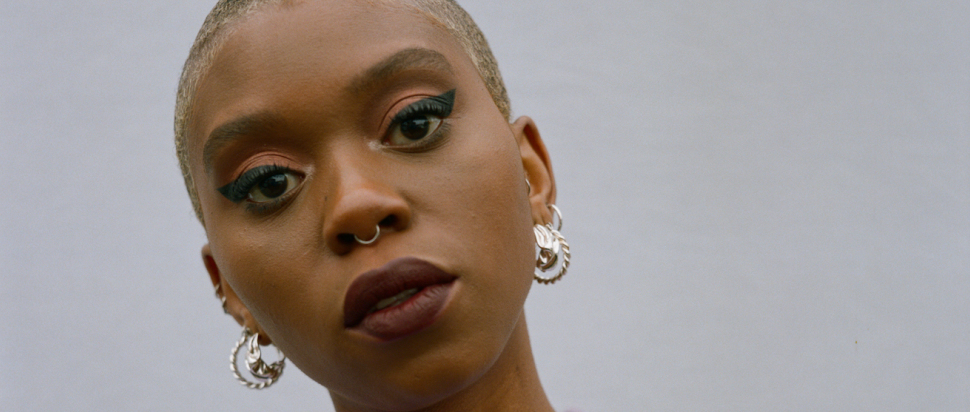Lola Olufemi on Experiments in Imagining Otherwise
London-based acedemic and writer Lola Olufemi's work spans interdisciplinary research, curation, and a deep commitment to community organising and political action
Lola Olufemi’s second book, Experiments in Imagining Otherwise, tenderly but ferociously champions Black feminist, anticapitalist and anticolonial thought, by challenging the reader to imagine the possibility of living differently.
Although Olufemi’s two books grapple with overlapping ideas, her newest book is a divergence, stylistically, from Feminism Interrupted. “Experiments In Imagining Otherwise tries to make the case that there is a connection between the landscape of our political and affective desires (the wishing and hoping for liveable life) and our capacity for resistant action. At the most basic level, the book asks questions about what is at stake and what it would take to actualise our demands,” says Olufemi on choosing this more experimental approach to political writing.
“It’s a creative form of consciousness raising; I wanted to write something that tried to recreate the feeling of being moved. I asked myself; when I’m in an organising space or when I touch/read a piece of political ephemera (Claudia Jones’ pamphlet ‘An End to the Neglect of the Problems of the Negro Woman!’ for example), why do I feel an echo of the demands articulated in it? Why does it feel like somebody I know wrote this pamphlet? Experiments is an attempt to answer those questions,” she continues, “a way to ask how might we take this subjective experience called “Imagining” (the process of bringing that which does not previously exist into being) and turn it into a collective phenomena that can be applied to our political organising or, at the very least, help to shore up resistant desire?”
When asked about how the writing process differed for each project, Olufemi explains, “Feminism Interrupted felt quite formal and structured – I had a plan, I had arguments I wanted to make and I understood the necessity of doing that in a critical but accessible way. Writing Experiments felt wayward, playful. It allowed me to pick up and put down different genres, to mix what shouldn’t be mixed, to express ideas in fragmentary and non-linear ways. To make a materialist argument using what the vulgar materialists hate – emotion! queerness! Desire!”
“Incorporating fiction was my favourite element,” she continues. “There is a way that fiction can colour political questions – I could add texture by not only stating what the worlds we seek to build will require from us (struggle, revolution, seizing the means of production) but by trying to imagine and describe what walking through the city in the aftermath of that might feel like, who would be there, what the air could taste like. I don’t want to be mistaken for a utopian. I want to remind us that materialist analysis and imaginative thinking are not mutually exclusive
“I wrote it during the first winter lockdown, mostly sitting next to my grandma whilst we watched true crime documentaries,” she adds.
The text repeatedly touches on reimagining our conceptions of history and archives; describing her own relationship with the history of radical action, Olufemi says that she “believe[s] that History, fundamentally, is a contest over power between classes in which radical action has been taken in the forms of strikes, revolutions, uprisings by dispossessed working class people in order to secure resources that would make dignified existence possible. This has involved cycles of destruction, armed struggle but also of rebuilding, autonomous zones, mutual aid-programmes, forcing concessions from the state. My own relationship with that kind of radical action in a global context is that, by letting go of the idea that the past, present and future are fixed and distinct temporal regimes, I refuse to see that past as isolated from the present or from a collective future.”
Musing on how this relationship influences her work, she notes, “In Experiments, I was trying to find a way not to discipline time: to say that against the idea that time moves via a metrical arrow of progress: it might also be a spiral, a circle, a shape, or pattern or intensity that I am not able to articulate. In relation to radical action, freeing ourselves from the timeline means we free ourselves from the idea that we are what comes after “the radical past” or “the revolutionary heyday” – we might also be in that moment now, we’ve just not yet been historicised. The capacity to resist is still available to us, we’re not struck. The future might be here in our actions. This way of thinking could help us go around the discourses of defeat that sully us.”

As someone who has spent far too many hours of their life in organising spaces, the passage OVERHEARD IN THE MEETING in Experiments conjured a frustrating but familiar picture of the realities of collective action. I was interested in hearing Olufemi’s view on how her conception of the “otherwise” could enable activist groups to overcome the roadblocks that come along with organising collectively. “Organising spaces are spaces of failure and yet they are absolutely necessary,” she responds. “If we refuse to conceptualise politics as something we either “win” or “lose” then we can understand that in coming together, in naming our political conditions and shoring up bonds of affinity, care, mutual aid – in keeping each other safe from the police, keeping each other alive during the pandemic, in forms of direct action – we are indeed engaging in transformation.
“So we take our frustrations and we keep going, understanding that agitation is a life-long project, that we belong to a legacy of the defeated, who found ways to make life worth living even in the most dire circumstances. I don’t have a lot of patience for those who position organising attempts as gauche and hide behind ambivalence. At the end of the day, what are you willing to do for somebody else? What political promises can you make with your language, your body and your actions? Those are crucial questions.”
Early on in Experiments, Olufemi writes that she has “already outgrown everything I have ever written.” What is her advice, particularly those who write about politics, on grappling with how our beliefs and understandings change over time? “Maintaining flexibility is crucial for any writer,” she says, “not just those writing politically. It is okay to change your mind and then to change it again. That for me is the definition of a dialectical approach, to work through tensions, oppositions, to find commonality in the things that seem irreconcilable. Sometimes that commonality won’t exist at the level of strategy but it might exist at the level of our basic wants: we want the same thing: a world free from violence, one not premised on our extinction, dispossession, extraction via the machineries of capital and colonialism. We are arguing about how we will get there, a worthwhile argument, a seemingly never-ending one! Remain attentive to those fights, try not to get tired. Stay nimble, the future can never be finished.”
Ahead of her events at the Edinburgh International Book Festival which dive more into this new work, it feels a fine time to ask her how she has found returning to live events and being able to talk about her work in person again. “Relation is extremely important to me, it is nice to be back in rooms with other people where possible. I cherish it,” she responds. “Mostly I think about the joy I get from being with others alongside the mass death we have just lived through and continue to live through. I always end up back in the same place: we could live differently, how could we live differently?"
Lola Olufemi will be taking part in two events at this year's Edinburgh International Book Festival; Be the Change, a discussion of her own work (Sat 27 Aug, 14:15 - 15:15), and a close reading of the work of Preti Taneja and Hannah Black (Fri 26 Aug, 17:00 - 18:30).
Experiments in Imagining Otherwise is out now from Hajar Press
